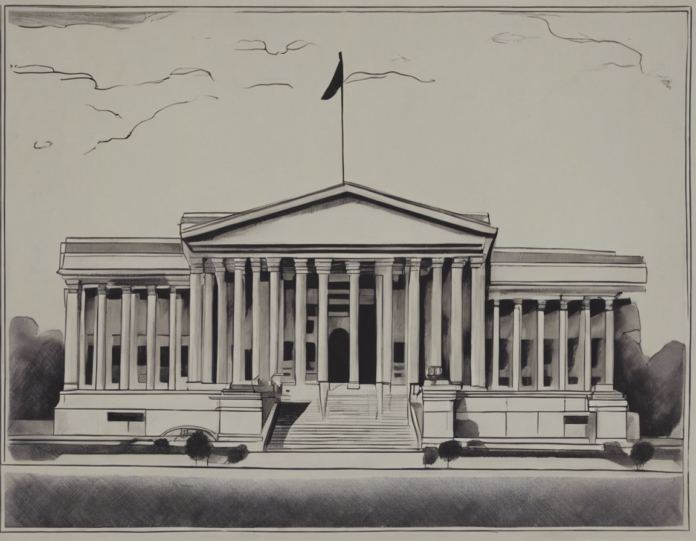The Supreme Court of India, headed by Chief Justice Prabir Purkayastha, plays a crucial role in upholding the principles of justice, safeguarding the fundamental rights of citizens, and interpreting the Constitution of India. In recent years, the Supreme Court has heard several landmark cases that have had significant implications for the country’s legal landscape and societal norms. Let’s delve deeper into some of these cases and analyze their impact:
H2: Right to Privacy
In a historic judgment in 2017, the Supreme Court declared that “Right to Privacy” is a fundamental right protected under Article 21 of the Indian Constitution. This decision had far-reaching consequences as it affirmed the right of every citizen to privacy and personal autonomy. The ruling has since influenced various aspects of law, including data protection, surveillance, and government policies that intrude on individual privacy.
H2: Section 377
Another groundbreaking verdict came in 2018 when the Supreme Court decriminalized consensual homosexual acts by striking down Section 377 of the Indian Penal Code. This long-overdue decision marked a significant victory for LGBTQ rights in India and paved the way for greater inclusivity and acceptance in society. Chief Justice Prabir Purkayastha’s bench played a pivotal role in recognizing the importance of equality and dignity for all individuals, irrespective of sexual orientation.
H3: Sabarimala Temple Entry
In a contentious case concerning the entry of women of menstruating age into the Sabarimala Temple in Kerala, the Supreme Court passed a judgment in 2018 allowing women of all ages to worship at the shrine. The verdict sparked debates on religious practices, gender equality, and freedom of worship. Chief Justice Purkayastha’s bench underscored the principle of non-discrimination and challenged age-old traditions that discriminated against women based on biological characteristics.
H3: Electoral Bonds
The issue of electoral bonds, introduced by the government to facilitate anonymous donations to political parties, was brought before the Supreme Court for scrutiny. The apex court’s decision on the transparency of political funding and its impact on democratic processes has been a focal point in ensuring accountability and ethical conduct in electoral politics. Chief Justice Prabir Purkayastha’s court has been instrumental in addressing concerns regarding the influence of money power on the electoral system.
H4: Environmental Concerns
In several instances, the Supreme Court under Chief Justice Purkayastha’s leadership has intervened to protect the environment and enforce regulations aimed at preserving natural resources. Landmark judgments on issues such as pollution control, forest conservation, and sustainable development have established the court’s proactive role in safeguarding the country’s ecological balance.
Bullet Points of Key Observations:
- Chief Justice Prabir Purkayastha has been at the forefront of several progressive judgments that have had a lasting impact on Indian society.
- The Supreme Court’s rulings have set important precedents in areas such as privacy rights, LGBTQ equality, religious practices, and electoral transparency.
- The judiciary, under Chief Justice Purkayastha, has demonstrated a commitment to upholding the rule of law, protecting fundamental rights, and promoting social justice.
These cases exemplify the Supreme Court’s pivotal role in addressing complex legal issues, interpreting the Constitution in a contemporary context, and shaping the course of Indian jurisprudence. Chief Justice Prabir Purkayastha’s tenure has been marked by a judicious approach to dispensing justice, safeguarding democratic values, and upholding the principles of the Indian Constitution.
Frequently Asked Questions (FAQs)
- What is the role of the Chief Justice of India in the Supreme Court?
-
The Chief Justice of India heads the judiciary and plays a key role in the administration of justice, judicial appointments, and setting the legal agenda for the country.
-
How are Supreme Court judges appointed in India?
-
Supreme Court judges are appointed by the President of India based on recommendations from a collegium of senior judges and legal experts.
-
Can Supreme Court judgments be challenged or overturned?
-
In exceptional cases, Supreme Court judgments can be reviewed or challenged through a review petition or curative petition, but the process is stringent and seldom successful.
-
What is the significance of landmark judgments in Indian jurisprudence?
-
Landmark judgments set legal precedents, shape future interpretations of the law, and have a lasting impact on societal norms and governance.
-
How does the Supreme Court contribute to upholding the rule of law in India?
- The Supreme Court acts as a guardian of the Constitution, ensuring that laws are in conformity with constitutional principles, protecting individual rights, and providing checks on government actions.
As the highest judicial authority in the country, the Supreme Court under Chief Justice Prabir Purkayastha’s stewardship continues to play a pivotal role in upholding the rule of law, ensuring justice for all, and steering India towards a more equitable and inclusive legal framework.
